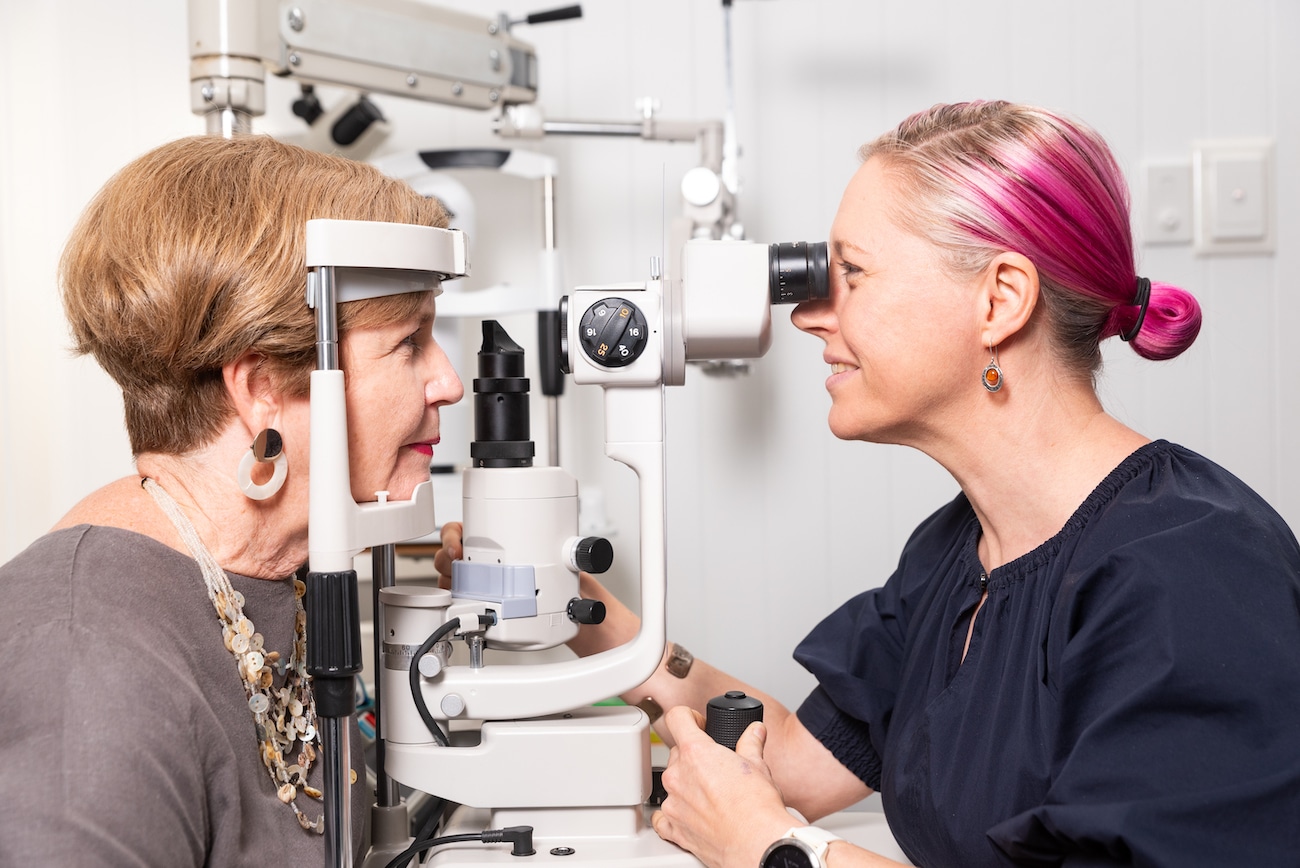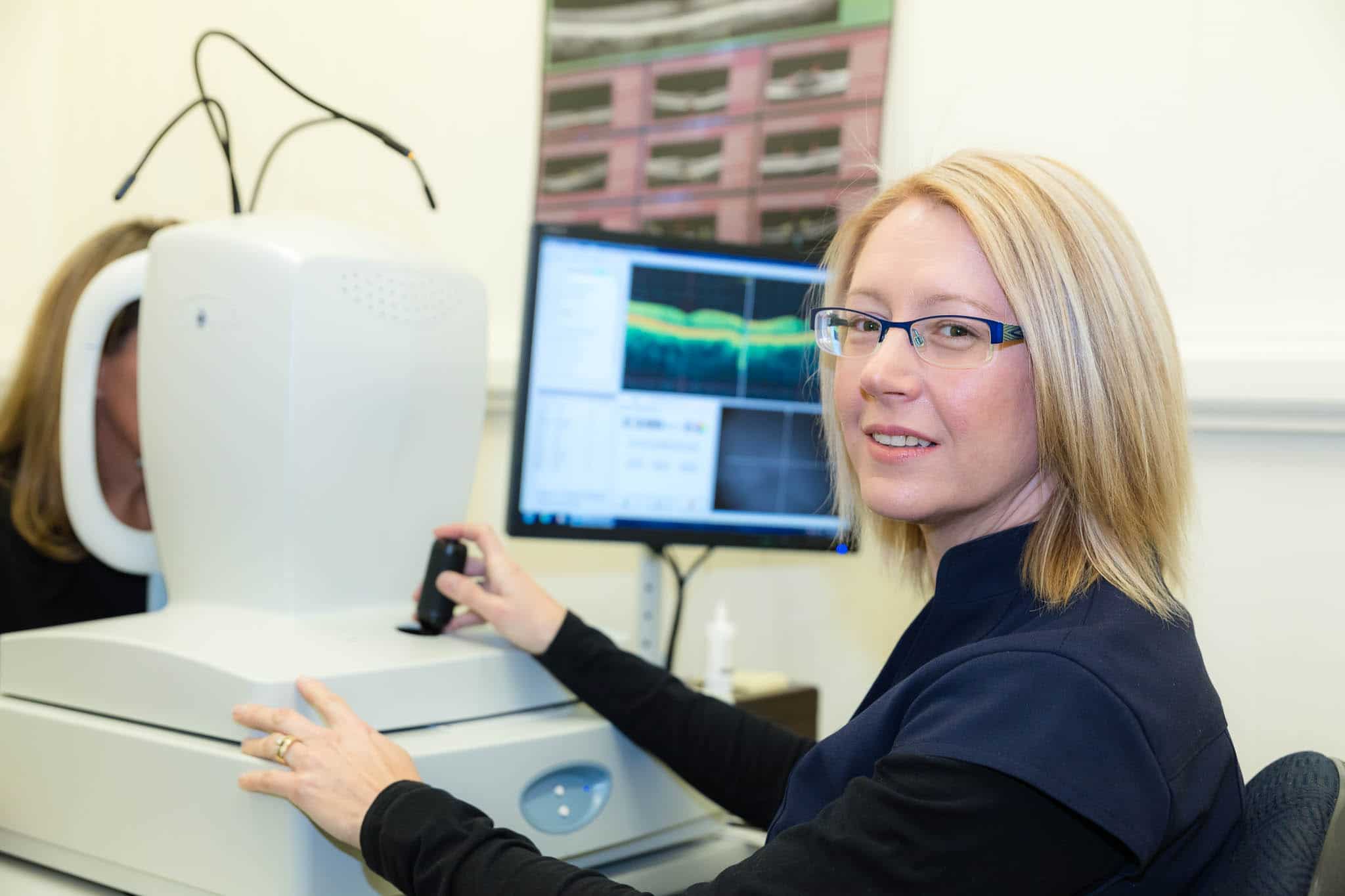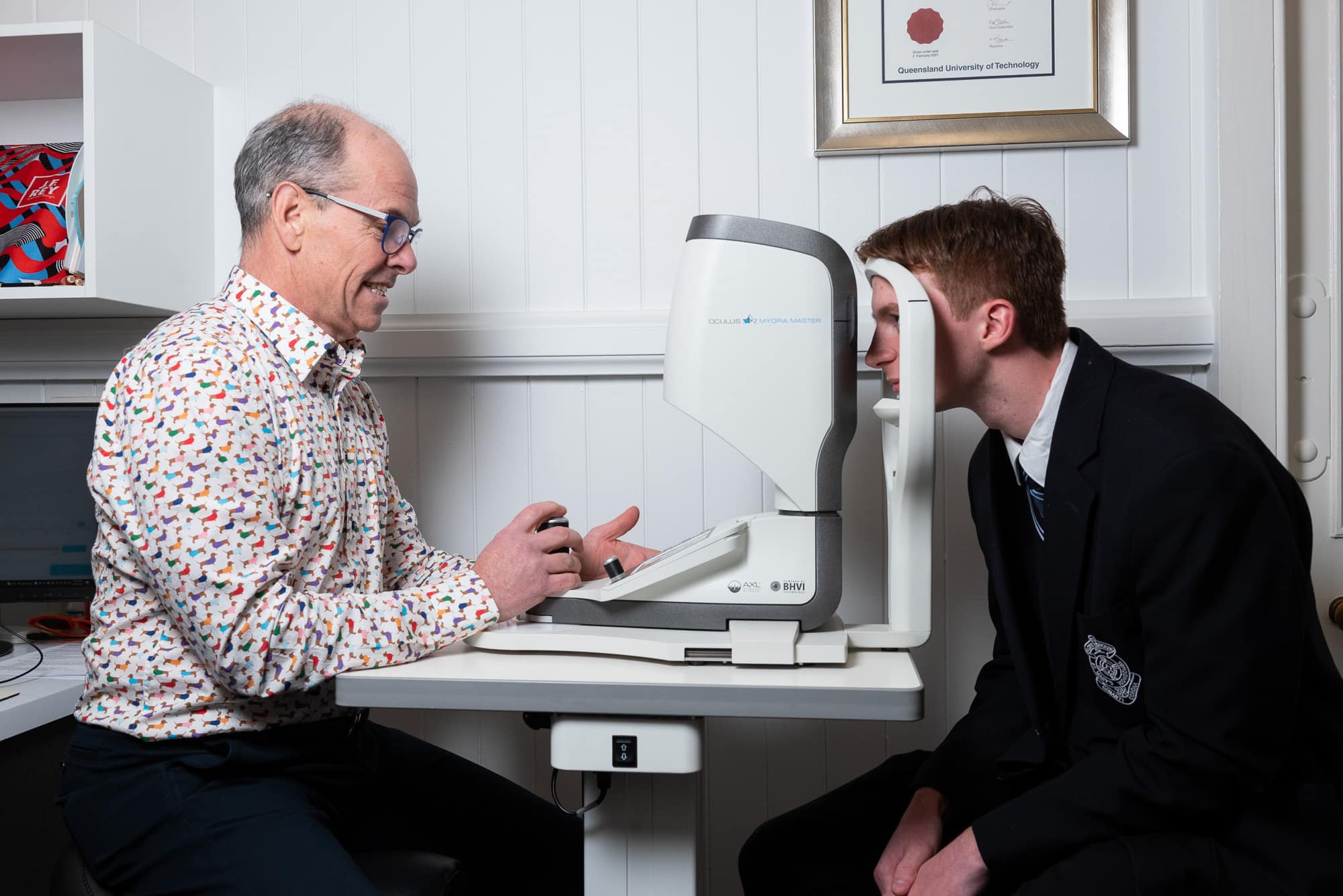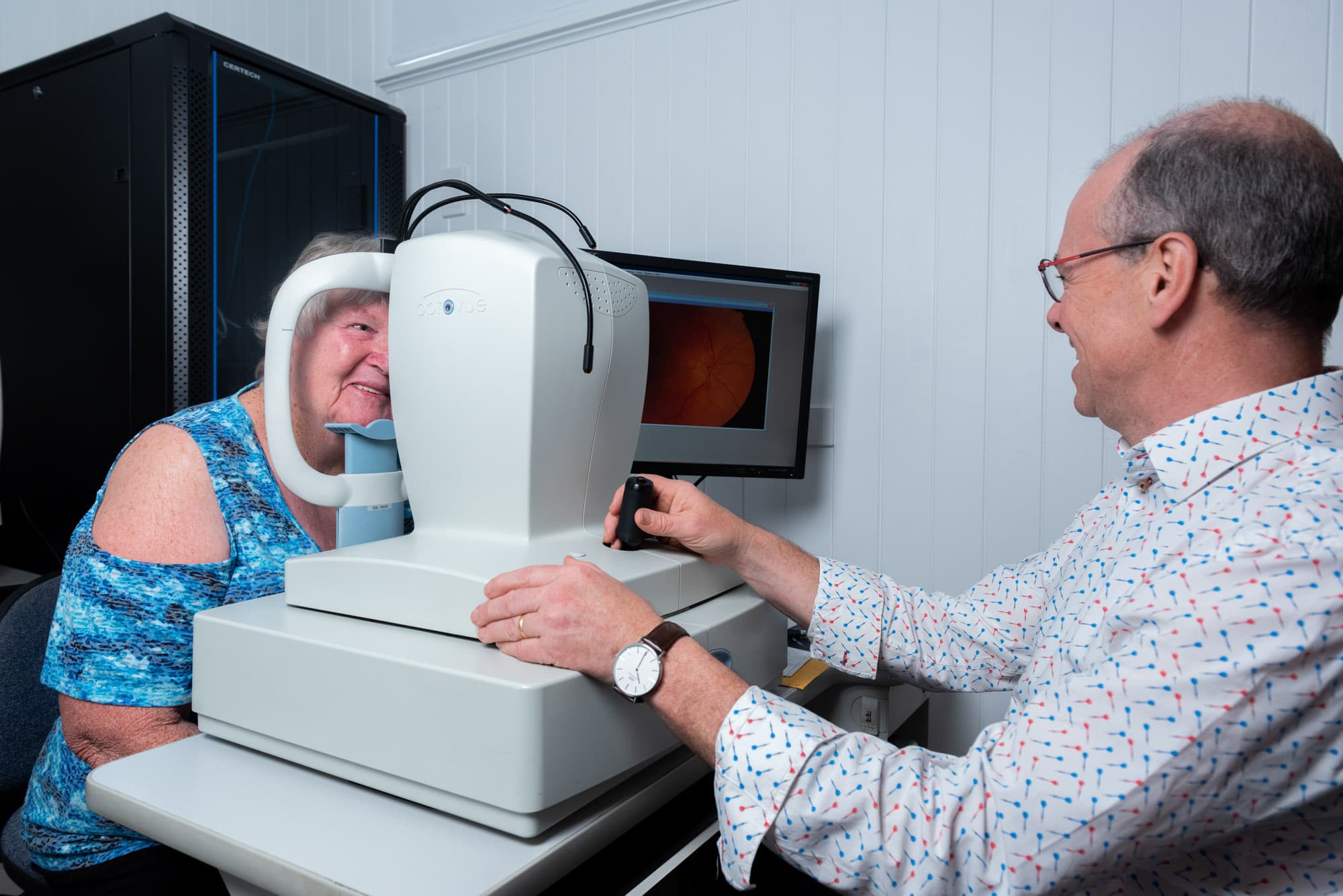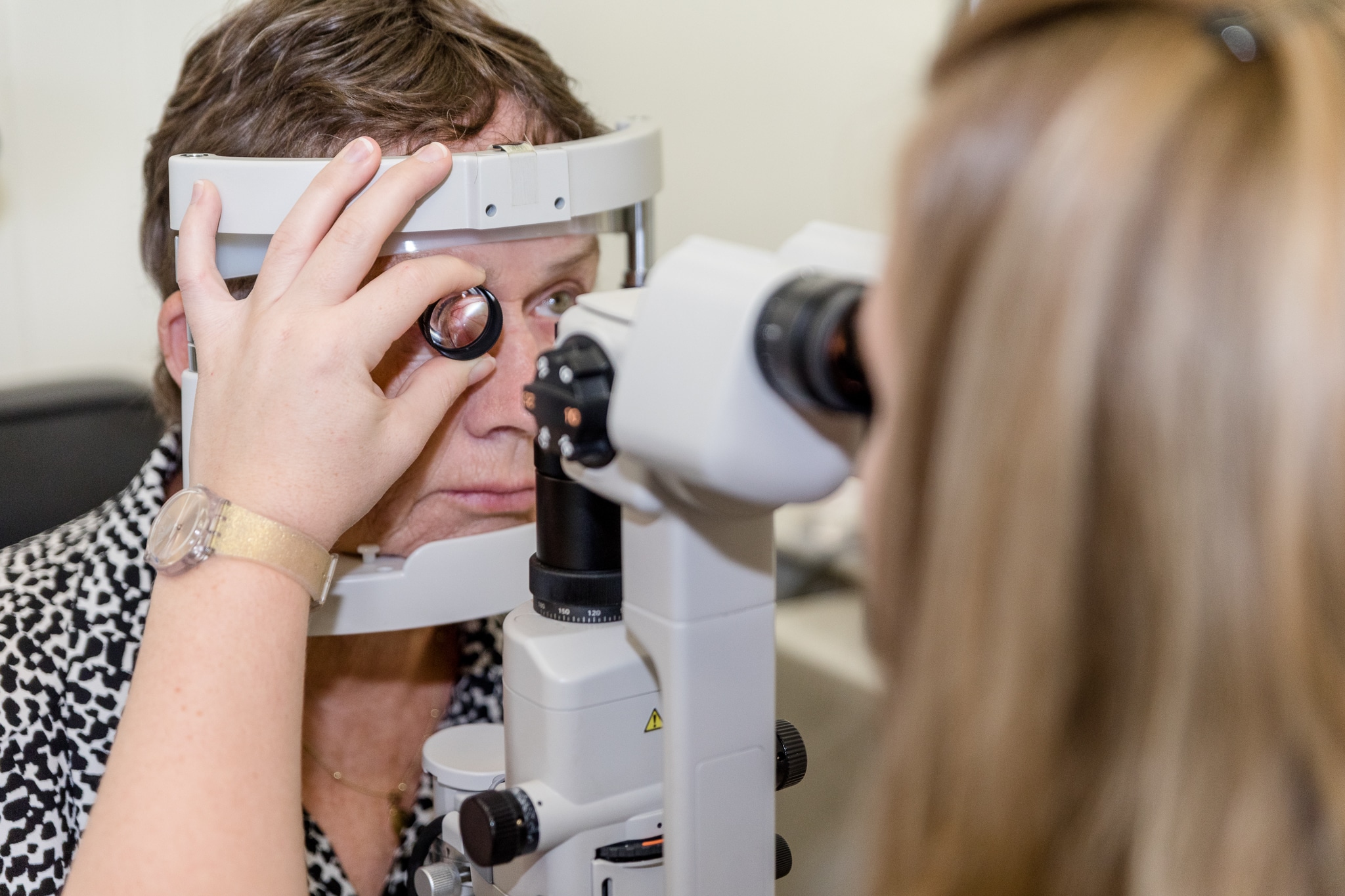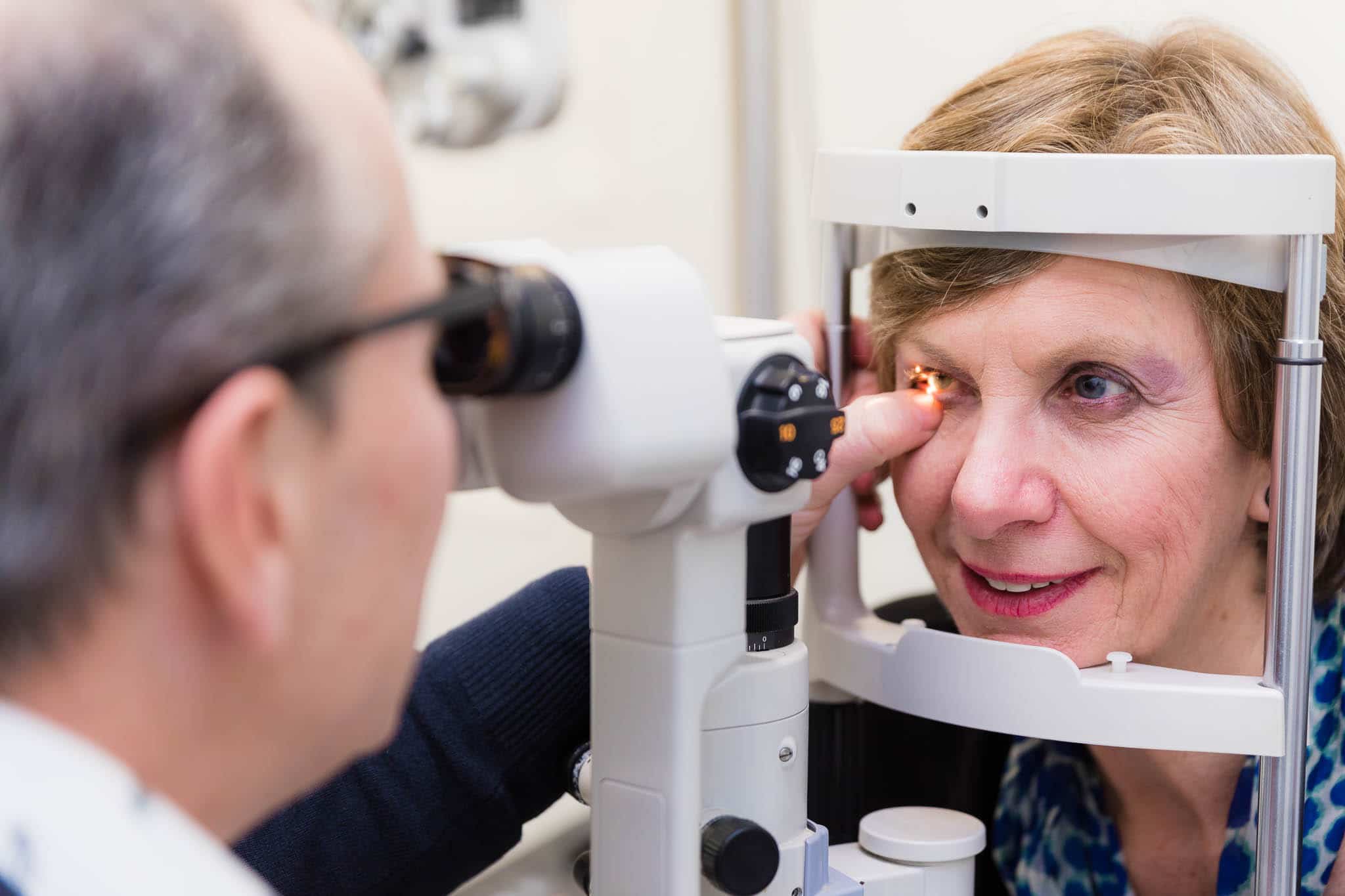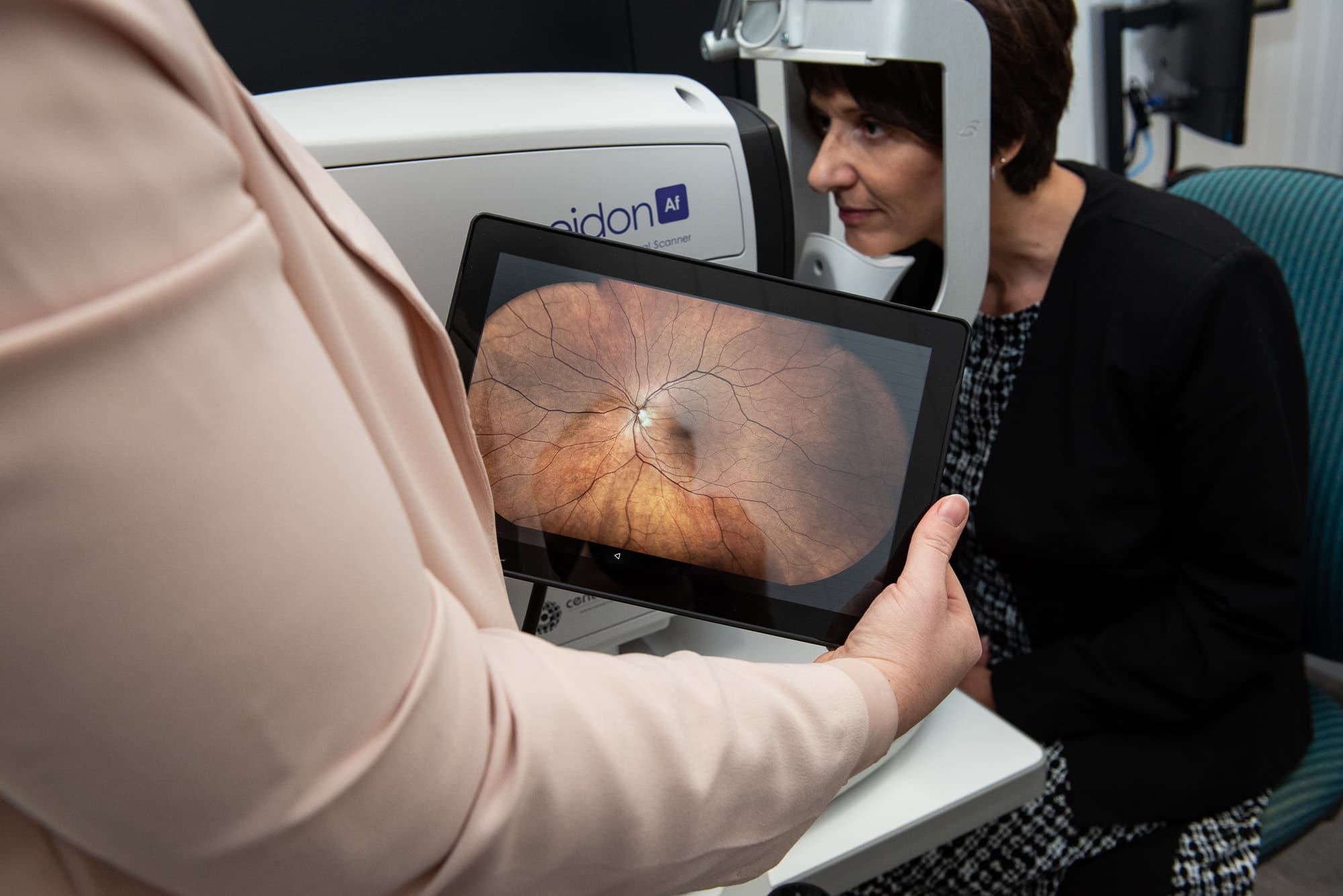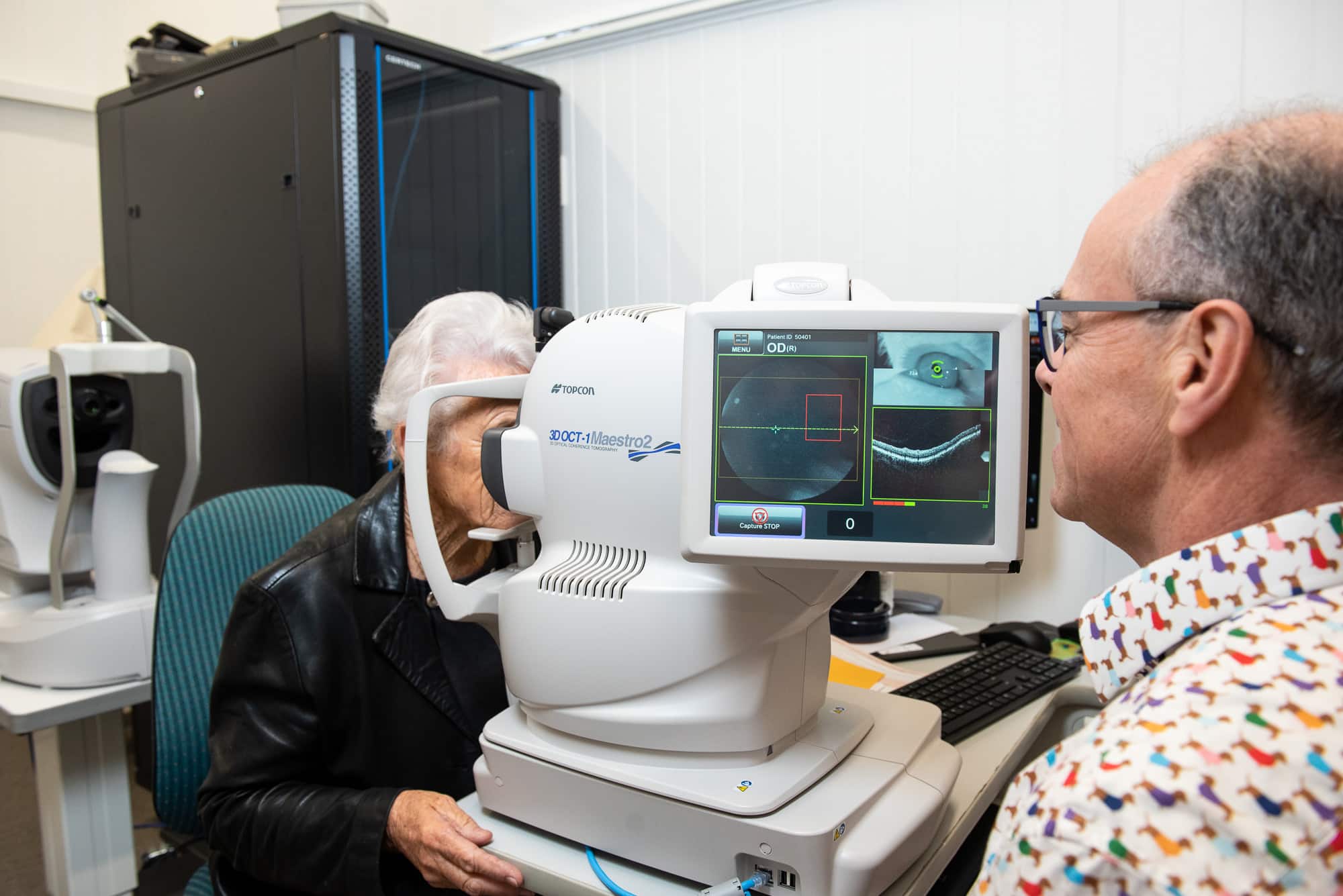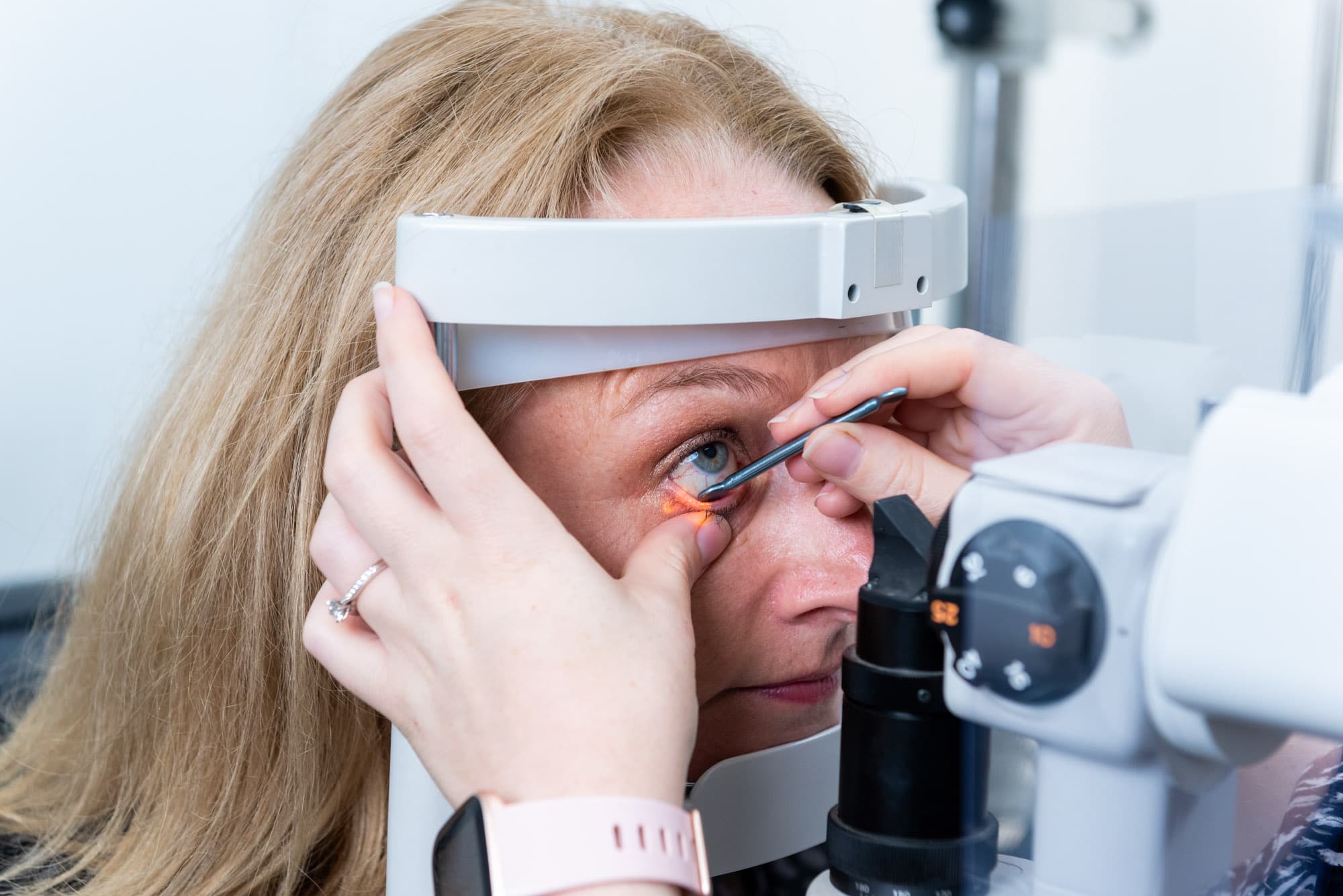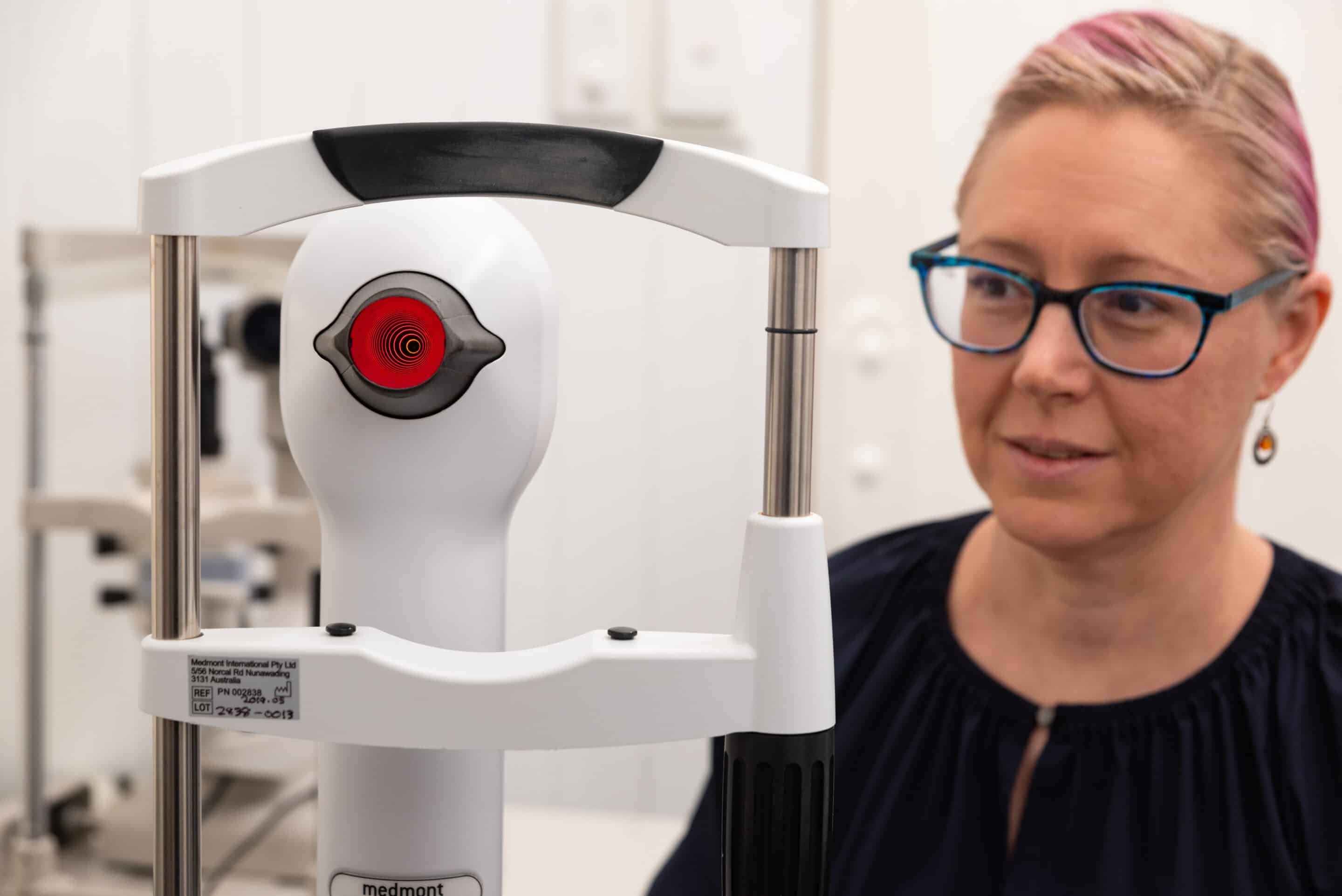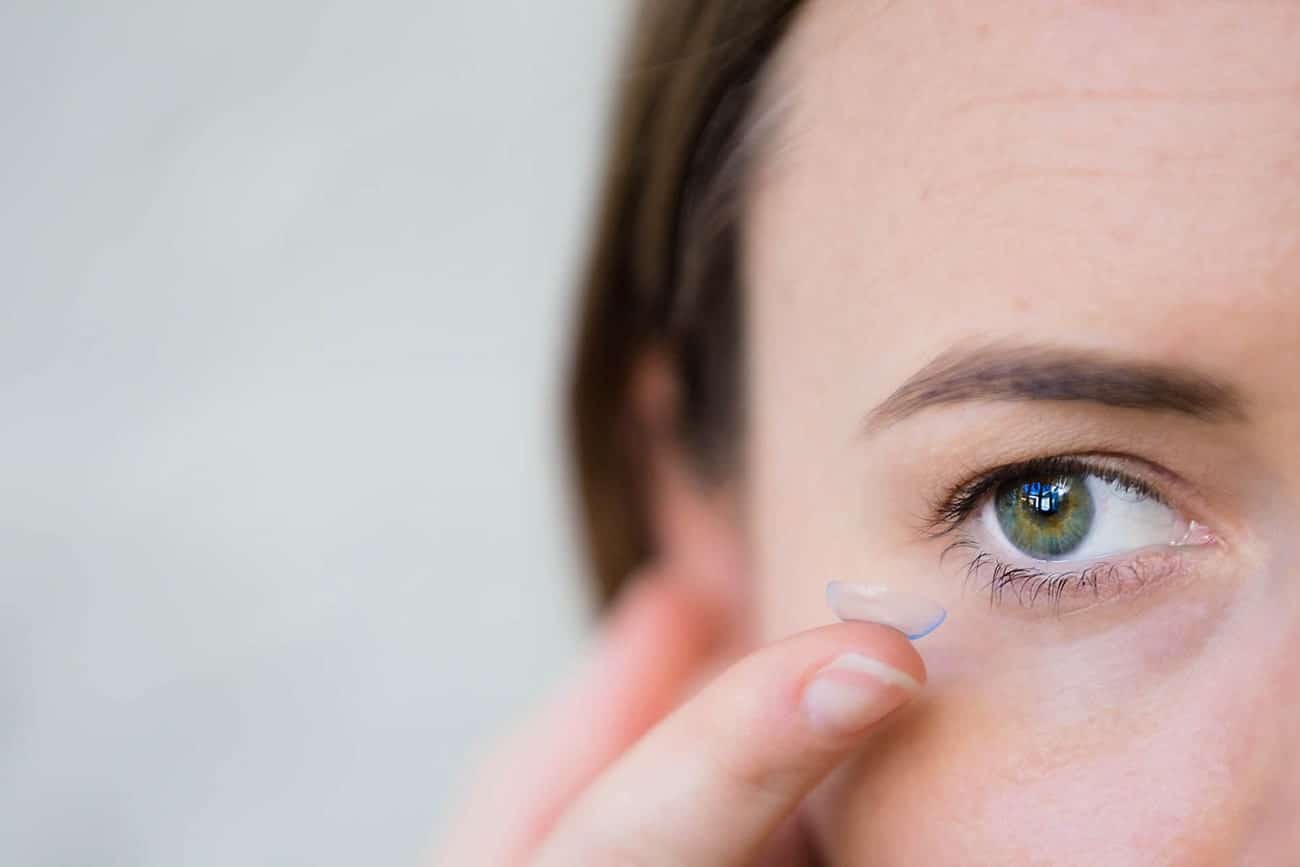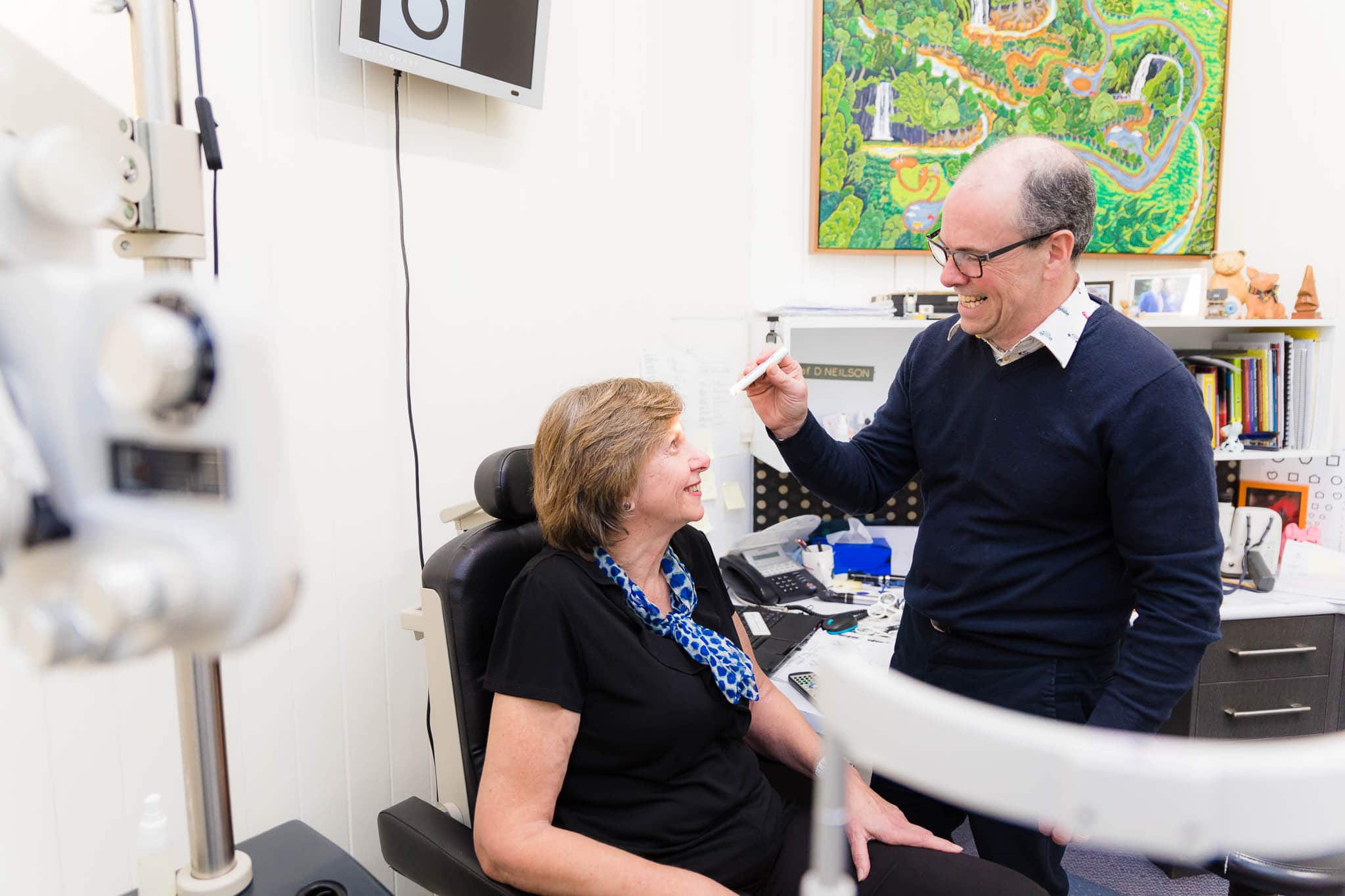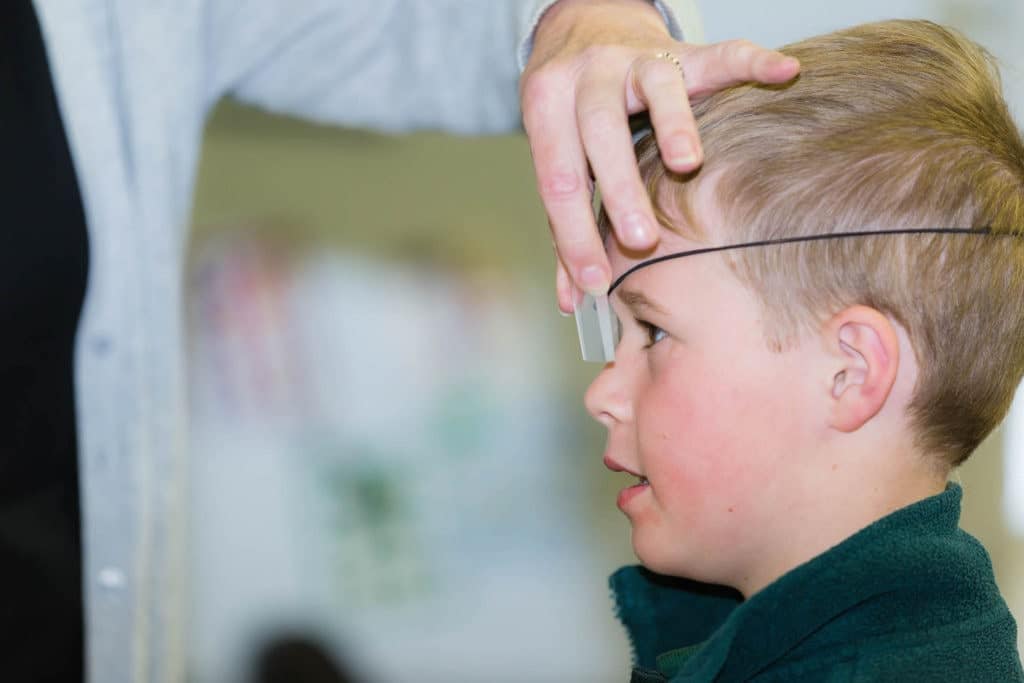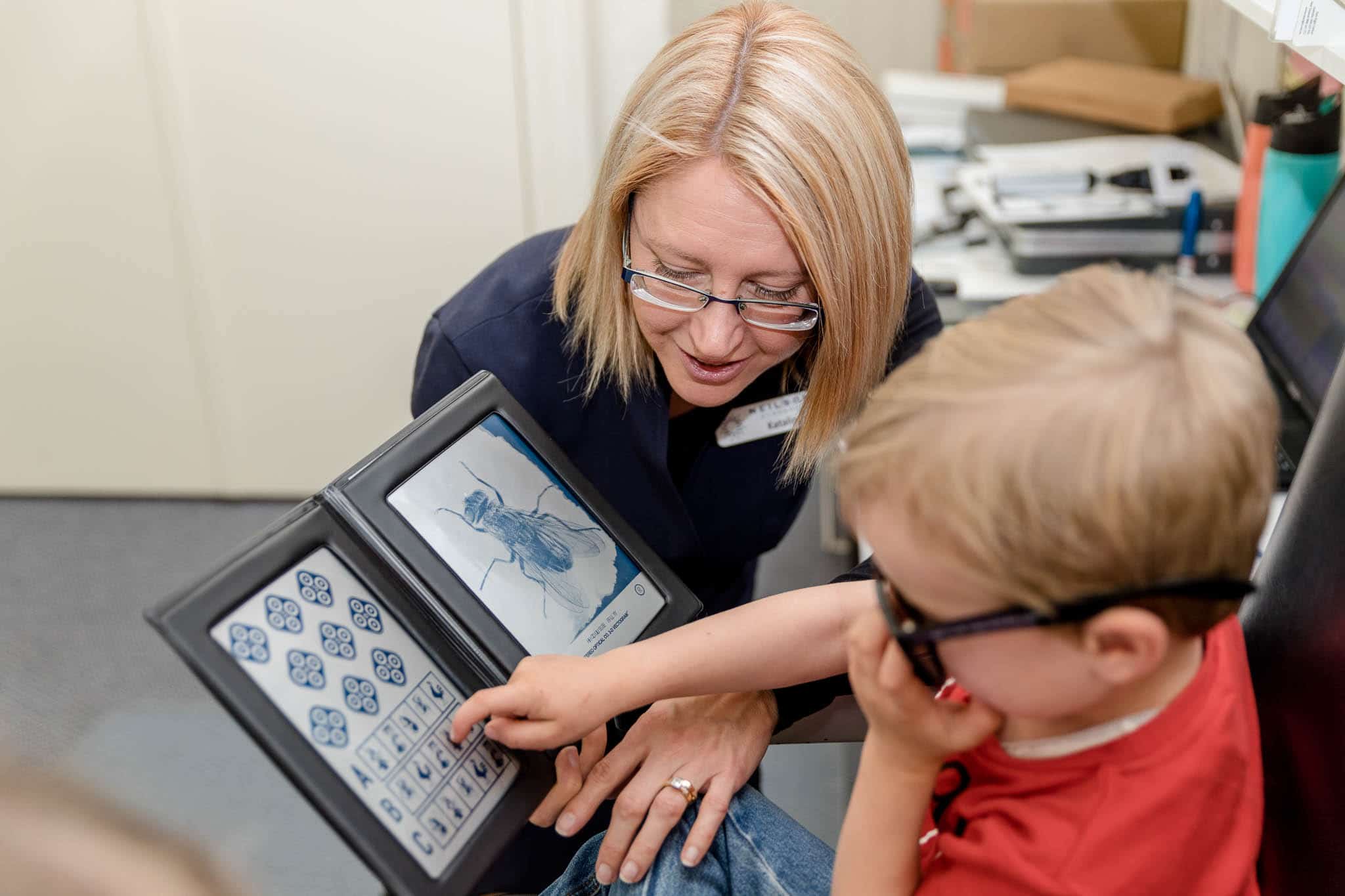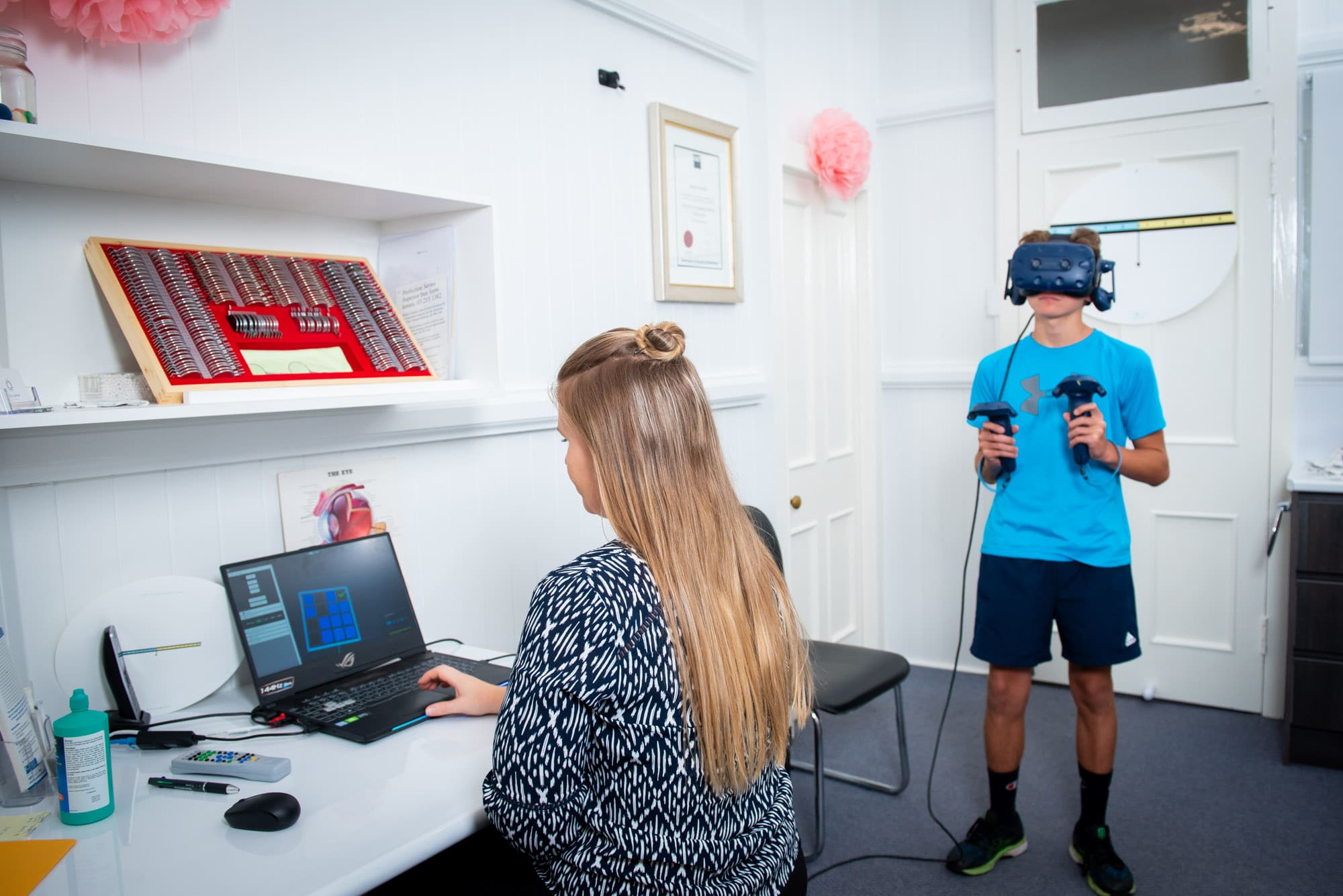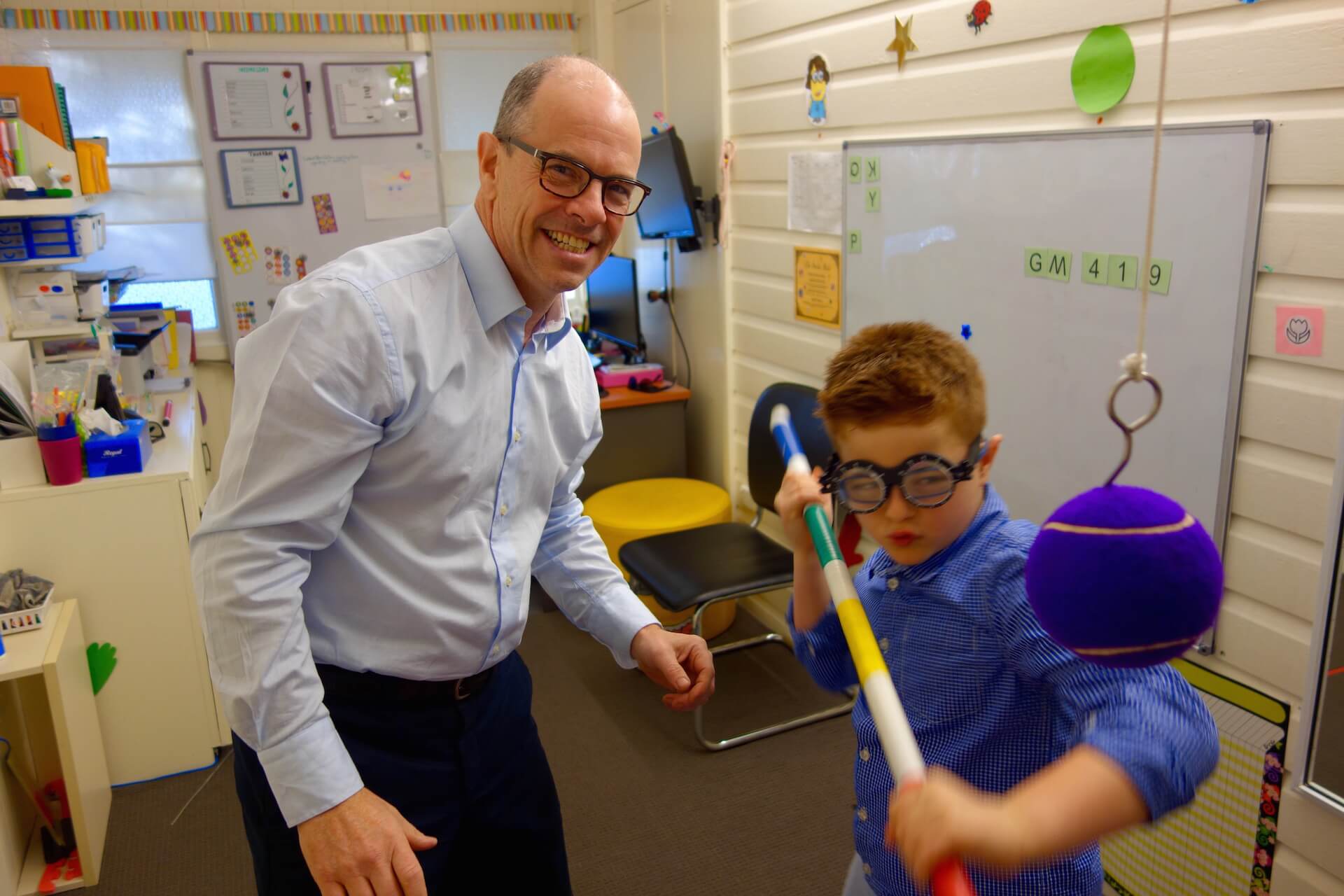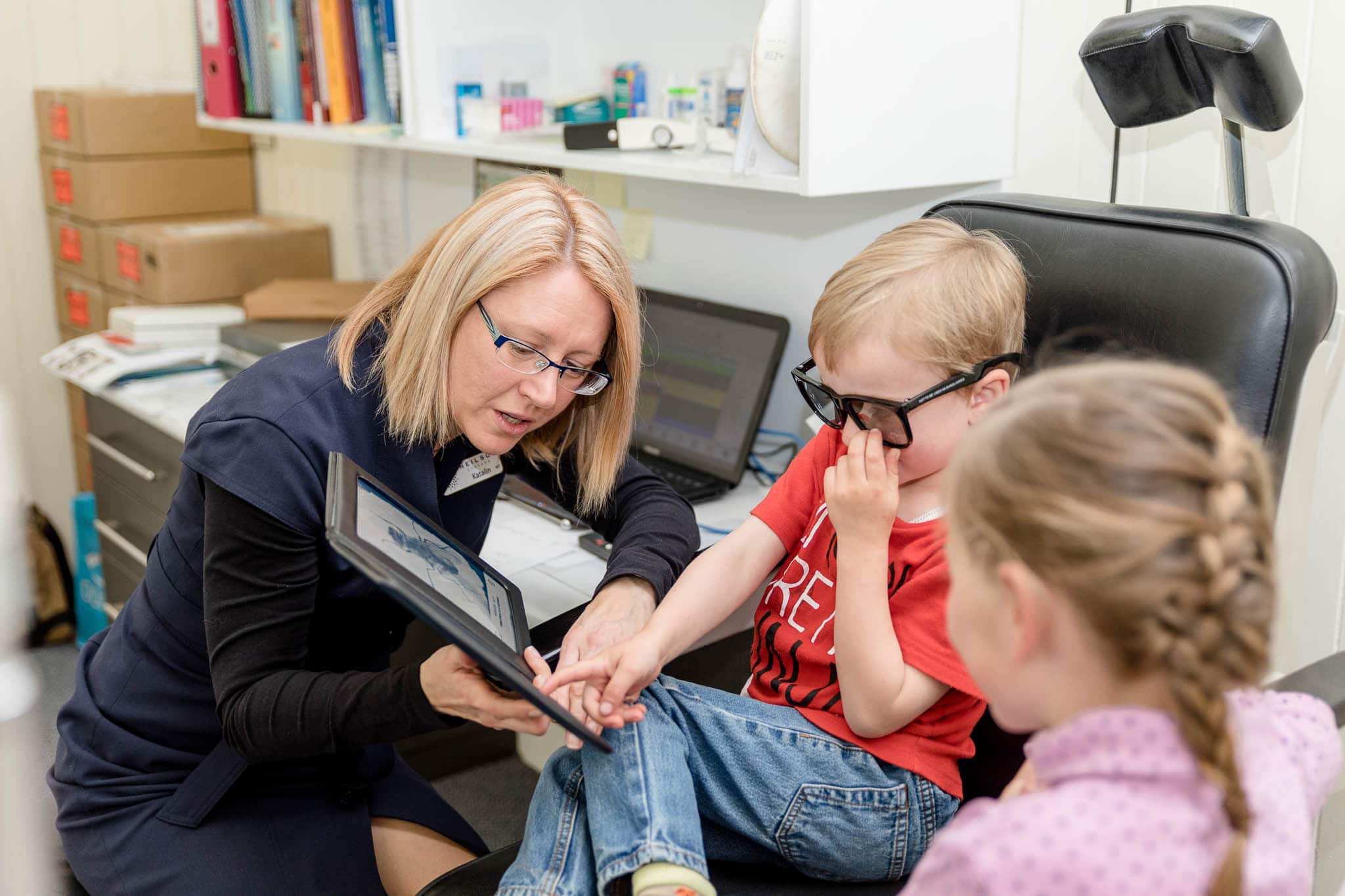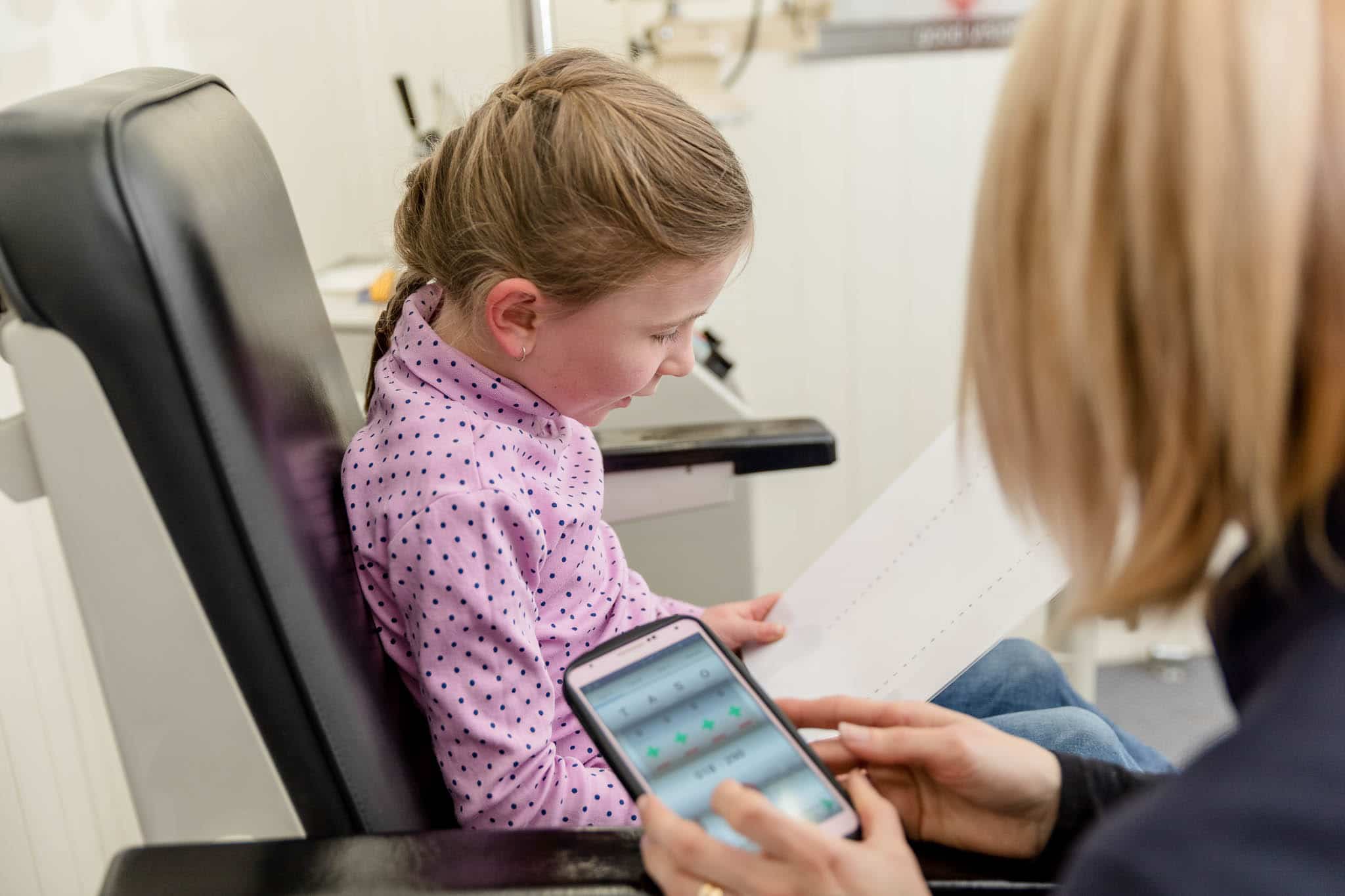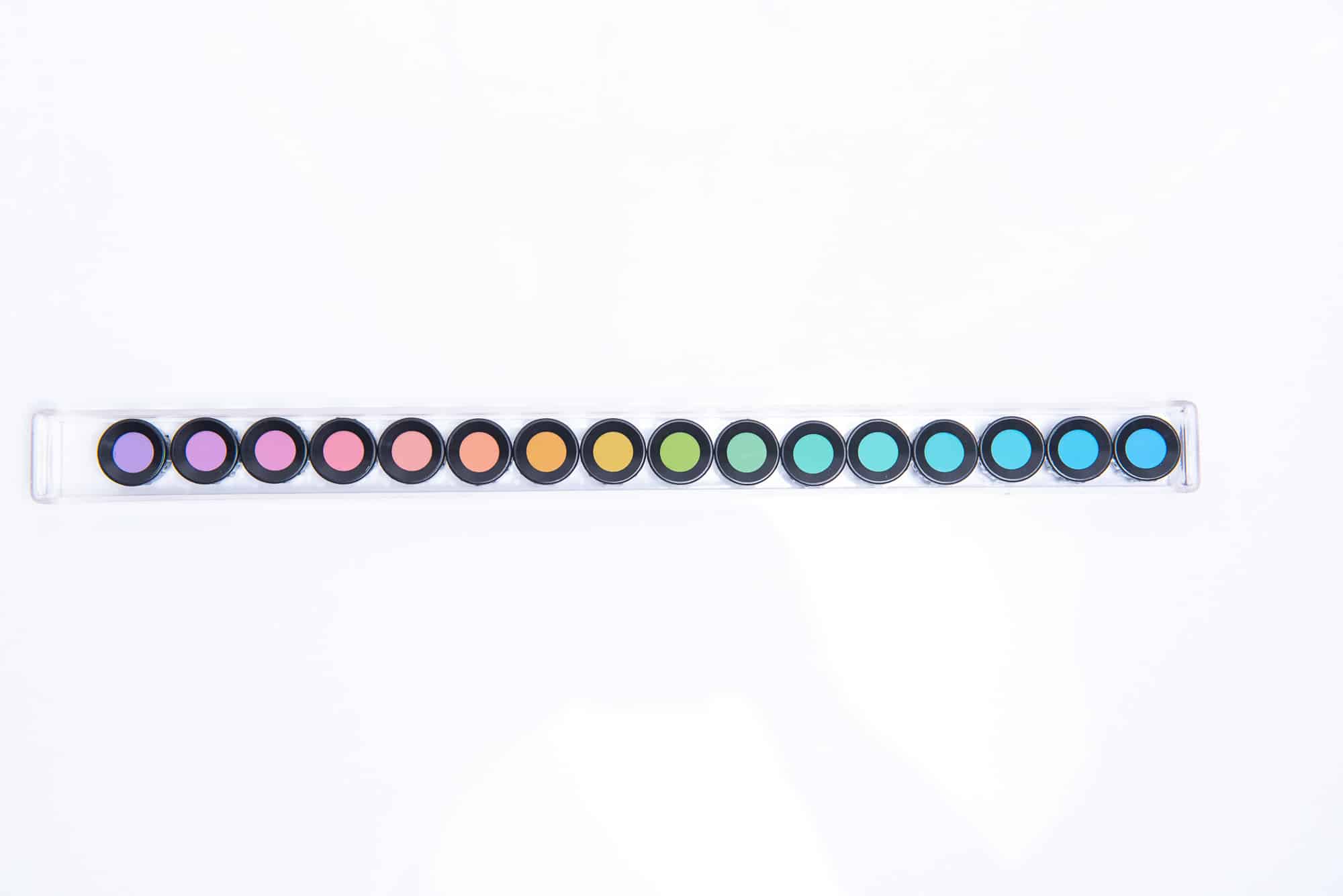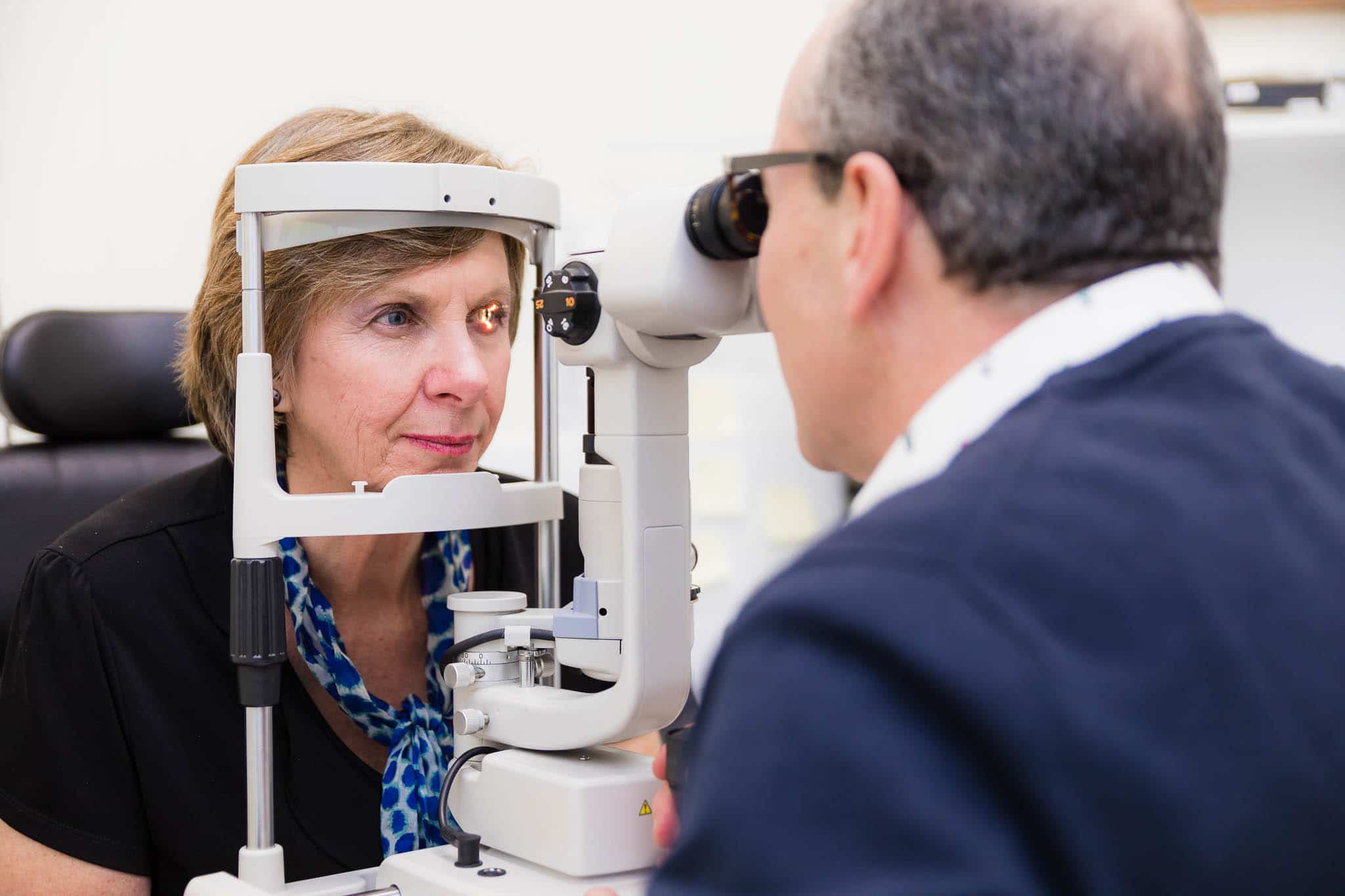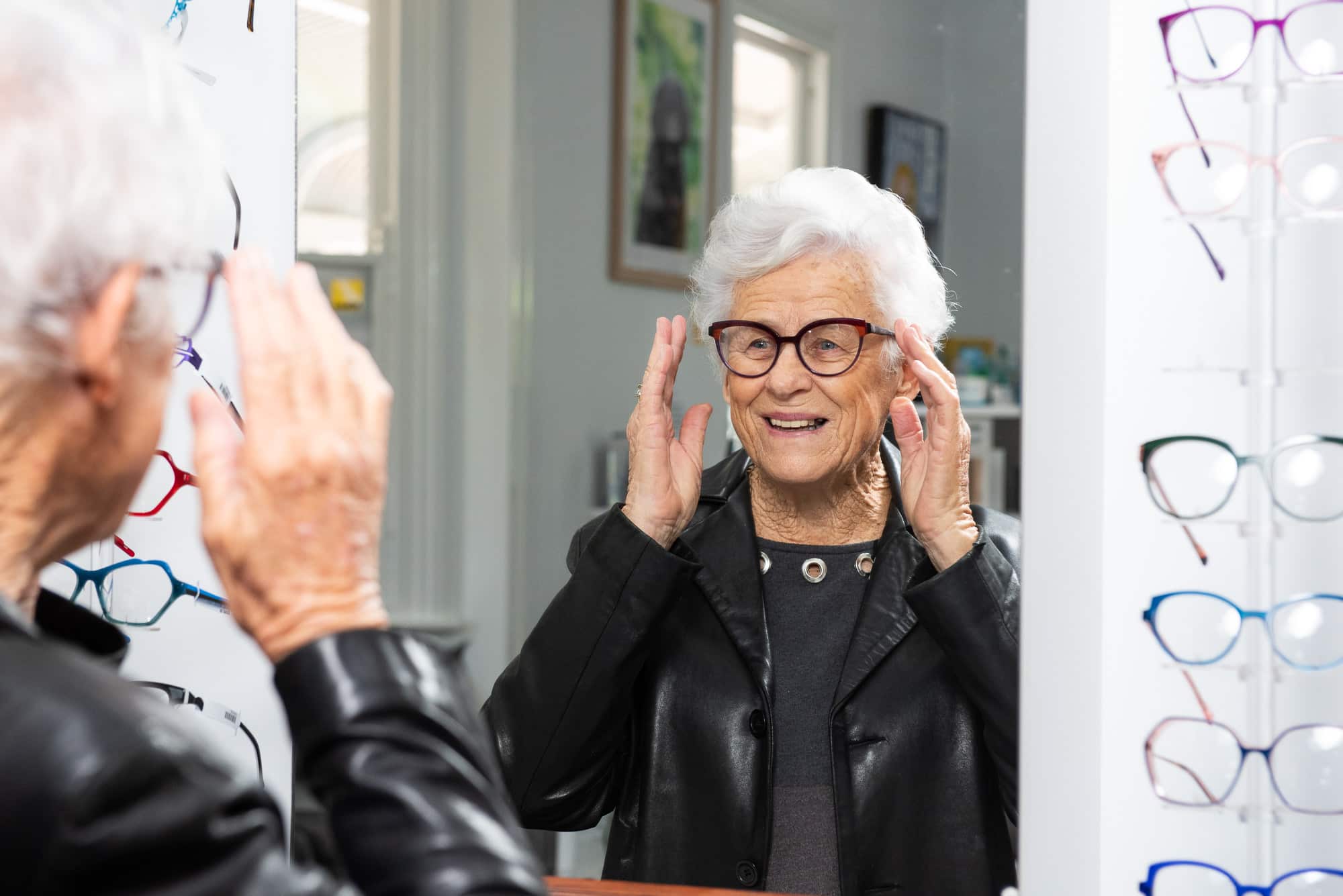Eye Test
An eye test will take between 45 minutes for an initial test to 30 minutes for a follow up. During this time we will test your vision, eye health and eye coordination and screen for eye diseases such as glaucoma and macula degeneration. We will listen to your concerns and take the time to explain your eyes to you, in understandable and actionable language. Read more
General Eyecare
In addition to the eye test, a general eye care health check is included in all our comprehensive consultations. If eye health issues are found during this general health check our optometrists will perform further tests to diagnose and monitor specific eye conditions. Read more
Macular Degeneration Exam
Dry macular degeneration is a common eye disorder among people over 50. It causes blurred or reduced central vision, due to thinning of the macula. The macula is the part of the retina responsible for clear vision in your direct line of sight. Read more
Myopia Control
Myopia control is the use of lenses or eye drops to prevent the condition occurring or slowing it down. Myopia, or short sightedness, is on the increase world wide. With increased educational demands and increased screen time, myopia is becoming an epidemic. Read more
Glaucoma Exam
Glaucoma is a group of eye conditions that damage the optic nerve, the health of which is vital for good vision. This damage is often caused by an abnormally high pressure in your eye. Read more
Diabetic Retinopathy Exam
Diabetic retinopathy is a diabetes complication that affects eyes. It’s caused by damage to the blood vessels of the light-sensitive tissue at the back of the eye (retina). At first, diabetic retinopathy might cause no symptoms or only mild vision problems. But it can lead to blindness. Read more
Keratoconus Exam
Keratoconus occurs when your cornea (the clear, dome-shaped front surface of your eye) thins and gradually bulges outward into a cone shape. A cone shaped cornea causes blurred vision and may cause sensitivity to light and glare. Read more
Digital Retinal Imaging
Retinal imaging uses a digital camera to take pictures of the back of your eye and can alert our optometrists to the early signs of macular degeneration, diabetic retinopathy and the early detection of glaucoma in much greater detail than previously. Read more
OCT - Optical Coherence Tomography
Optical coherence tomography (OCT) is a non-invasive imaging test. The OCT machine uses light waves to take cross-section pictures of the back of the eye (retina). OCT is routinely used to image the eyes of patients with macular degeneration, diabetic retinopathy and glaucoma… Read more
Orthokeratology - ortho-k
Orthokeratology, or ortho-k, is the use of specially designed and fitted contact lenses to temporarily reshape the cornea to improve vision. It’s like orthodontics for your eyes and the treatment is often compared to dental braces. Read more
Contact Lens Fitting
Our optometrists are experienced in fitting and managing patients with a wide variety of contact lenses, such as soft contact lenses, frequent replacement soft contact lenses and rigid, gas-permeable contact lenses. Special therapeutic, multifocal and cosmetic contact lenses also are available. Read more
Laser Refractive Surgery Assessment
Laser eye surgery assessment checks if someone is suitable for laser eye surgery. It involves measuring the eye with specialised equipment. Read more
Vision Training
For some people, developing visual skills can be particularly difficult, meaning slow progress in learning to read, hand-eye coordination and learning. Every one of us has to learn to coordinate their eyes. In the same way as a toddler learns to coordinate their arms and legs to walk. Read more
Dyslexia and Vision Problems
Whilst we cannot diagnose dyslexia, we can test for common vision problems that can cause similar issues. We recommend that any child with dyslexia or dyslexia-related symptoms have a comprehensive Vision Skills Assessment so as to determine the status of their vision skills. Read more
Visual Rehabilitation
Nearly 50% of the brain is taken up with the function of vision with many parts of the brain tasked with vision processing. Each part has to be connected to other parts of the brain. All these connections make vision more prone to damage. If there is damage to the brain in a certain area, or several areas, there is a high chance that vision will be affected. Read more
Virtual Reality Therapy
Virtual Reality is a therapy tool we use to improve a patient’s binocular vision (how the eyes work together to produce a three dimensional representation of the world), reduce suppression (where a patient uses only one eye at a time) and improve amblyopia (lazy eye). Read more
Sports Vision
Sports activities require accuracy and speed for optimal performance. These skills allow you to track a ball as it flies through the air, stand in the correct location to catch a ball, and accurately pass the ball to another player. Reduced visual skills will make it difficult to participate in sports activities and team sports. Read more
Children's Optometrist
Our optometrists are experienced in helping with some of the most complex of visual problems, such as those brought about by conditions such as autism, dyslexia and problems with reading. One in 5 children suffer from an undetected vision problem. Many of these conditions can be picked up in children at an early age. Read more
Behavioural Optometry
Behavioural Optometry is a different way of looking at vision. Rather than the number of letters a patient can see on a chart, a behavioural optometrist looks into how a patient’s visual system functions. Eyesight is seeing the car. Vision is getting across the road without being run over. Read more
Colour Vision Testing
Neilson Eyecare offers Colour Vision testing to test for colour vision deficiencies (commonly known as colour blindness). There are many different types of colour vision deficiencies, including red, green and blue. We have the Ishihara 24 plate test, the Medmont C100 flicker test and the Farnsworth D15 colour arrangement test. Read more
Migraine (Vestibular)
Migraine symptoms, including Vestibular Migraines, commonly begin with a migraine aura, in the form of blurred vision, loss of visual field, inability to concentrate and tingling of the fingers. This may escalate to; throbbing pain on one or both sides of the head, sensitivity to light and sound, difficulty in speech (coherently constructing a sentence), nausea and vomiting, light headedness and fainting. Read more
Eyewear Selection Assistance
All the staff at Neilson Eyecare are highly trained to help our patients select the perfect frame that fits well and suits the lenses that will be fitted into them. The frame selected will also suit the lifestyle of the wearer. Whether that is playing tennis, rounding up cattle, driving long distances or whatever it is that our patients do. Our aim is always for our patients to love their glasses. Read more
Veteran Affairs Program
Neilson Eyecare is a registered provider for Veteran Affairs optical services. Read more
Health Fund Optical Extras
Neilson Eyecare accepts all Australian Health Funds. Read More
Medicare Rebate Claim
Neilson Eyecare will process your eligible Medicare rebate on the spot using the Hicaps system after your consultation. Read More

